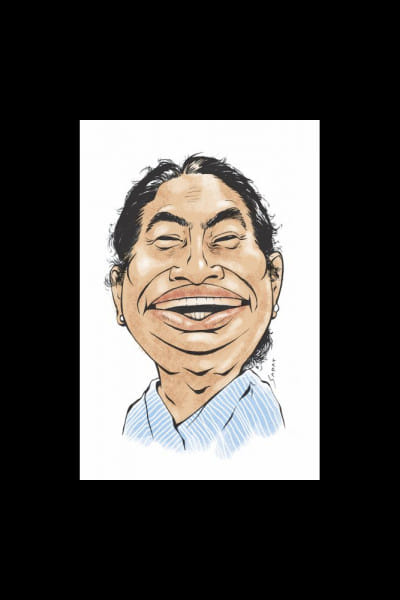Long awaited visit

FINALLY, Mamata Banerjee, who is popularly known as Didi in India, paid us a visit. We only wonder why she didn't come much earlier! She won a landslide victory in the West Bengal legislative assembly election in 2011. I happened to be in Kolkata during the election. I saw the exuberance of the people of Kolkata when the election results were announced. I saw how she was greeted by her fans and supporters after her victory. In her victory speech, she graciously announced that Prime Minister Sheikh Hasina called to greet her. She assumed the office of the chief minister in May, by ending the 34-year rule of the Left Front government led by the Communist Party of India (Marxist).
The people of Bangladesh were expecting Mamata to visit us at the earliest opportunity. It was announced that she would accompany Dr. Manmohan Singh, former prime minister of India, during his visit to Dhaka in September, 2011. Several bilateral agreements were due to be signed between the two countries during the high-profile visit. At the last moment, Mamata decided not to come due to disagreement on the sharing of the water of the Teesta River with Bangladesh. It was also reported that she had reservations on the implementation of the Land Boundary Agreement (LBA).
It was a great setback for both Dr. Manmohan Singh and Sheikh Hasina. Although several agreements, including the implementation of the LBA, were signed during the visit of Dr. Singh, two agreements, one on sharing the water of the Teesta River and the other on the transit of goods from West Bengal to the north-eastern provinces of India through Bangladesh, could not be signed. Without getting any cooperation from Mamata Banerjee, Dr. Singh was unable to bring about necessary changes in the constitution of India to implement of the LBA.
Why did Mamata oppose the Teesta agreement and the LBA? She always claimed that she had acted in the interest of West Bengal. As chief minister, it is, of course, her prime responsibility. Was it the only reason or could it be an expression of her anger against the central government? Whatever be the reason, there has been a significant change of heart in Mamata, after the sweeping victory of the National Democratic Alliance (NDA) led by Bharatiya Janata Party (BJP) in 2014. Unlike the weak coalition government of Dr. Singh, Prime Minister Narendra Modi's BJP has an absolute majority in the Lok Sabha. Modi is not dependent on Mamata like Dr. Singh was.
Several recent incidents further weakened Mamata's position. The blasts in Burdwan exposed her failure in tracking the activities of terrorist groups in West Bengal. The alleged association of some leaders of her Trinamool Congress (TMC) with the Saradha scandal tarnished her clean image. Moreover, the vast majority of the Bangalee population of West Bengal, particularly those with roots in Bangladesh, did not appreciate her stand on the Teesta deal and the LBA agreement. She must have taken all the factors into consideration in order to improve her position, particularly when the next election of the West Bengal legislative assembly is due in 2016. She realised that good relation with Bangladesh would undoubtedly be a plus point for her. So, long before her visit to Dhaka, she gave her approval to the passage of a bill in the Lok Sabha to pave the way for the implementation of the LBA.
In spite of what happened in the past, the people of Bangladesh welcomed Mamata with an open heart. She reciprocated by saying on arrival in Dhaka that she felt like she was at home! She led a 40-member delegation comprising ministers, cultural personalities and businessmen. She met the president and the prime minister of Bangladesh, placed wreaths at the Shaheed Minar on the International Mother Language Day, visited the Bangabandhu Museum and met cultural personalities and businessmen of Bangladesh. She repeatedly asked the Bangladeshis to repose faith in her to deliver a settlement on the Teesta issue. "It's a new beginning," she said and added that the Padma, Meghna, Ganga and Jamuna belonged to "all of us" and none can be deprived of the benefits the common rivers offer. She also promised to be "a bridge" between Bangladesh and India!
Surely, Mamata also knows that besides the rivers we share a very rich language, an age-old culture and a long history. We share Rabindranath Tagore, Kazi Nazrul Islam and many other litterateurs, singers, artists, actors and actresses belonging to both West Bengal and Bangladesh. We share the Hilsha and many traditional foods of the Bangalees. She rightly described the relationship of the two Bengals (Bangladesh and West Bengal) as 'deep and durable' as perennial rivers Ganga and Jamuna.
How sweet, Mamata! She came, she saw, she conquered the hearts of millions. As she said, let this be a new beginning.
The writer is a senior nuclear engineer.

 For all latest news, follow The Daily Star's Google News channel.
For all latest news, follow The Daily Star's Google News channel. 



Comments